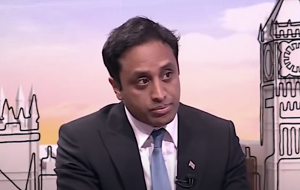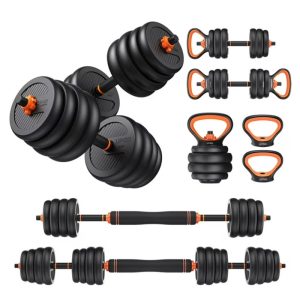Swinney must listen and learn from Farage – Daily Business Magazine


The SNP leader has to offer more than hostility towards his new challenger, writes TERRY MURDEN
In the SNP’s head office, a five-minute walk from the Scottish parliament, John Swinney was briefing journalists on the outcome of the by-election it was supposed to have won. He breezed into a small white-walled room looking a little chastened and ready to admit that he clearly has work to do.
Forecasters and other pundits had also been forced to concede they will have to brush up on their powers of prediction after the result in Hamilton, Larkhall and Stonehouse took most by surprise. The assembled group of hacks attending Friday morning’s briefing were among those who had expected the SNP to retain the seat. As it turned out, Mr Swinney didn’t share their confidence.
The First Minister invested a lot of personal energy in the constituency, even skipping a meeting of the defence review to devote more time to knocking on doors. What the voters told him was that the cost of living was too high and that public services, particular the NHS, GPs, needed improvement. The former is not really within his gift, but the latter will be a matter for further discussion with his Cabinet colleagues, including Mairi McAllan, the Net Zero and Energy Secretary, who returns shortly after her maternity leave.
They may each have their own views on what went wrong but potentially the most worrying challenge was that many of those voters who were worried about Labour’s performance said they would not be switching their vote to the SNP. They would instead vote for Reform UK. For Nigel Farage. A party and a party leader that had done minimal campaigning in the constituency and whose leader had only managed to visit a local pub and even avoided meeting the media, whom he’d left waiting in vain in a car park.
Mr Farage, who has been painted as the English nationalist invader, once had to be locked in another pub in Edinburgh to avoid a hostile crowd. In recent months he has seen his party’s popularity rise in England and now in Scotland. Its close-run third in Hamilton was achieved not by pushing leaflets through letter boxes or standing on soap boxes in the town square, but as a result of UK Labour’s disastrous first year in office and, it must be added, by the SNP’s own self-inflicted damage: the ferry debacle, the arrest of senior figures, an infamous campervan, and a minister’s expenses claim to watch football on a parliamentary laptop.
This may have been a Holyrood election but, according to Mr Swinney, it was the reserved matters – notably those energy costs – that were mostly bothering voters. However, if these were really concerning them why did Labour win the seat and why did they not find any comfort in the SNP’s alternative agenda?
Bizarrely, Mr Swinney also blamed Brexit as one of the chief concerns. If that was the case, it raises even more questions about why 26.1% of voters put their cross against Reform whose leader was one of the key architects of the UK’s departure from the EU.
The SNP leader coupled every reference to Mr Farage with the phrase ‘poisonous politics’ in what is likely to be a running theme until the 2026 elections. Notwithstanding some of Mr Farage’s more questionable views, if he is offering poison, then it’s clear that voters are prepared to drink it.
I put it to Mr Swinney that by constantly demonising the Reform UK leader he was failing to acknowledge why a sizeable and growing number of voters support him. His defence of the oil and gas industry, calls for tougher action on illegal immigration and his attacks on “wasted” expenditure in local authorities are among issues that chime with public opinion. Some in business are warming to his views on energy and taxation.
This weekend Reform is doubling down on the burqa debate which is said to have caused its chairman, a British-born muslim, to quit. It is approaching the subject with some caution, but it knows it has struck a chord with its core voters and that once again it is prepared to speak out on issues that other parties prefer to overlook.
Mr Swinney is among those who choose to dance around sensitive issues when the voters are telling him they want action. Instead of saying he would assess where Mr Farage might have actually got a few things right, Mr Swinney simply insists that he “has to be confronted”. That’s an unfortunate choice of word as the one thing Mr Swinney himself has demanded is less confrontation and a more consensual style of politics.
There is a running thread on social media and in SNP handouts that Reform presents a “threat” to Scotland, conjuring up images of Mr Farage assembling a King Edward style invading army poised to head north of the border to plunder the country’s town and cities. The threat is not to Scotland, but to the SNP and other parties. If Reform grows in Scotland it will not be through imposition, but because Scottish people vote for it. Therefore, to counter the “threat” the SNP and others have to understand why 7,088 of those who cast their vote on Thursday did so in favour of Mr Farage.
As I said in a column following Mr Farage’s presentation in Aberdeen, his critics accuse him of not being interested in Scotland, yet he spoke up for one of its biggest industries. He declared devolution needed to be improved as it is “not working”, but he said it was “here to stay”. That sounds like a commitment to Scotland. It is also why, when he returns, he may do so with an even bigger number of supporters.
It seems evident from his responses on Friday that Mr Swinney risks learning nothing about the shifts in British politics these past few months. Instead of raising the level of hostility towards Mr Farage, he should first allow him to be heard and then work out how the SNP delivers on those issues that are cutting through with voters. If Mr Swinney is not prepared to accept that some of Reform’s policies are proving more popular than his own then this can only end one way for the SNP leader and his party.
Terry Murden was Editor and Business Editor at The Sunday Times Scotland, Business Editor at The Scotsman, and Business and City Editor at Scotland on Sunday. He is now Editor of Daily Business.
>Latest Daily Business news
Related
#Swinney #listen #learn #Farage #Daily #Business #Magazine




